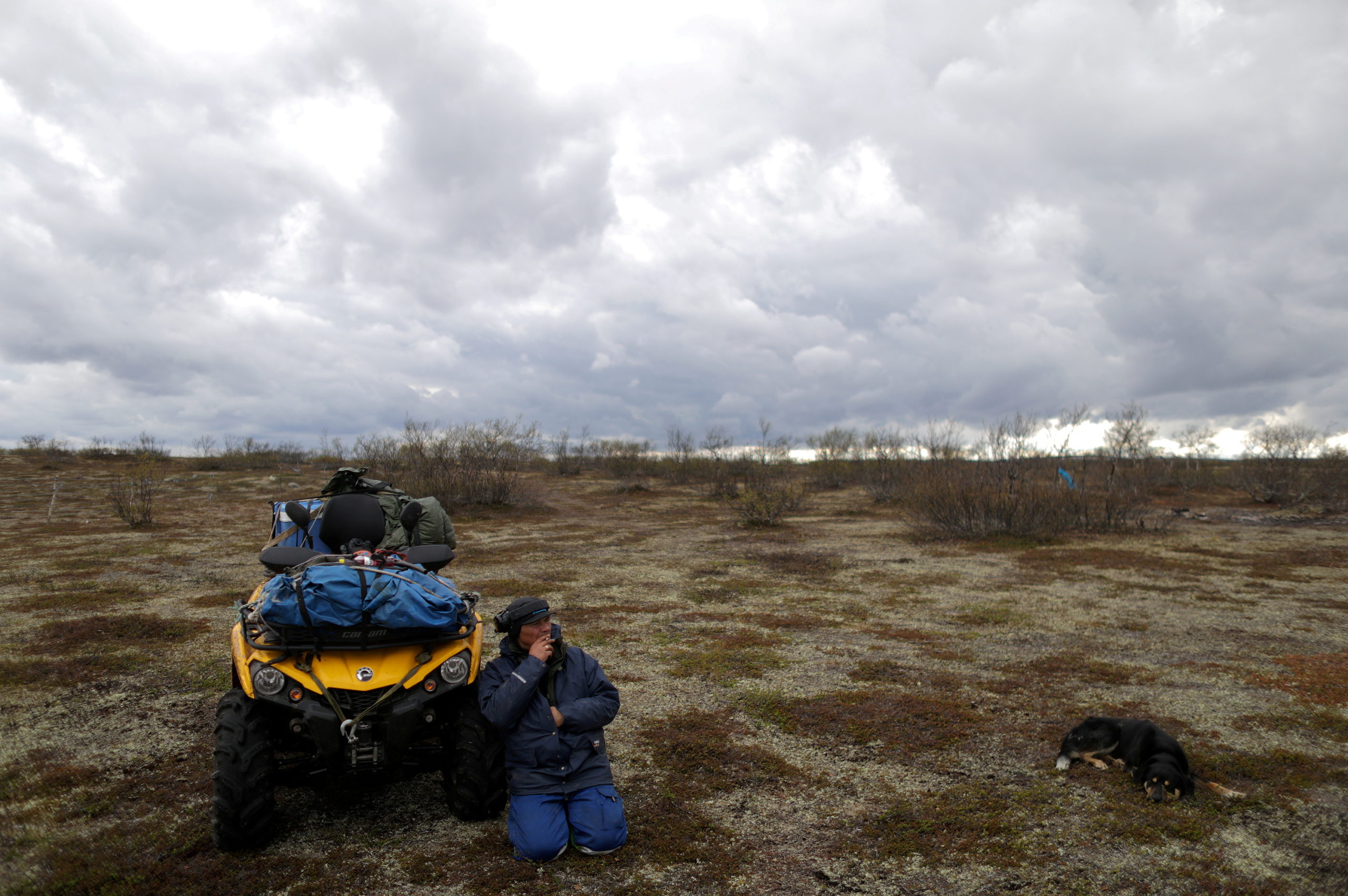Investors scrutinize a Norwegian company’s plan to mine quartz on Sámi grazing land
A recent court ruling stripping licenses from wind farms on Sámi grazing lands could have implications for the proposed mine at Nasafjell.

OSLO — Two shareholders in Norwegian silicon producer Elkem are pressing the company to respect the rights of indigenous Sámi reindeer herders who object to plans for a quartz mine they say puts their ancient culture at risk.
Storebrand Asset Management, Elkem’s seventh-largest shareholder with a 1.2 percent stake, said it would contact Elkem in view of a landmark ruling in October, when Norway’s Supreme Court stripped two wind farms of their operating licenses on the basis they interfered with herders’ cultural rights and breached international conventions.
Nordea Asset Management, which has a 1 percent stake, also said the herders’ rights must be respected as Elkem hunts for quartz. Quartz is used to produce silicon for electronics and chemicals, and is on the European Union’s list of critical raw materials.
The supreme court ruling pertaining to two wind farms at Fosen in central Norway has implications for other industrial projects, including Elkem’s plan to mine quartz at Nasafjell (or Nasa Mountain), where Sámi reindeer herders graze their animals.
[Norway wind turbines should be torn down, reindeer herders say]
“Human rights are a key concern for Storebrand Asset Management and we expect companies we invest in to respect human rights, including the rights of Indigenous Peoples,” CEO Jan Erik Saugestad told Reuters.
Storebrand needed time to assess the facts before providing any specific recommendations to Elkem, he said.
“But on a general level, I can say that projects that risk violating the human rights of Indigenous Peoples create significant financial risk both for the companies involved and for their investors,” Saugestad said.
Nordea Asset Management said it had contacted Elkem to make clear its expectations.
“We are closely monitoring the legal developments and company’s actions to live up to its ambition to have an open and meaningful dialogue with the Sámi reindeer herders and to find a well-working pre-agreed way of co-existence,” Eric Christian Pedersen, head of responsible investments at Nordea Asset Management, told Reuters.
Reindeer “need calm to graze”
Reindeer herders say the mining and associated activities, such as traffic to and from the site, will frighten animals grazing nearby and jeopardize age-old traditions.
Around 40 Norwegian Sámi reindeer herders use Nasafjell — on the border between Norway’s Nordland County and Sweden’s Norbotten County — roughly from October to May for their 5,500 animals. From May until October, the area is used by Swedish Sámi herders who cross the border with their 15,000 reindeer.
“I hope the Supreme Court ruling can help the Norwegian state see that this mining project is insanity. They should stop it altogether,” Per Thomas Kuhmunen, the head of the local reindeer herding district, told Reuters.
“If it went ahead, it would take away our rights to enjoy our culture and exercise our business,” he added, speaking by phone as he was preparing to move his herd to Nasafjell.
In winter, he said, his animals slow down to conserve energy as they focus on digging through the snow to find moss to eat. “They need calm to graze,” he said.
[Indigenous cultures must not be forced to bear the brunt of global climate adaptation]
International investors increasingly pay attention to environmental, social and corporate governance in their investments, including the human rights of Indigenous peoples.
In 2020, the chief executive of miner Rio Tinto quit after the company destroyed culturally significant Aboriginal rock shelters for an iron ore mine in Australia, sparking public outrage.
Elkem
Elkem applied to Norwegian authorities in 2017 to evict the herders from Nasafjell. It awaits a decision from the Norwegian government.
The industry ministry told Reuters the supreme court’s ruling in the Fosen case had relevance for Nasafjell, though each case had to be considered specifically. It expected to make a decision on the land rights at Nasafjell “shortly”.
Elkem CEO Helge Aasen said Nasafjell was interesting because it was “a very high purity quartz deposit” that was “quite large.”
Still, “there is no urgency from our side in having to start mining it,” Aasen told Reuters. “We can take a longer-term view on it and we will not create any controversies around it.”
Elkem’s main owner, China’s Bluestar with a 52. percent stake, did not reply to a request for comment.
Elkem’s second-largest shareholder, Norway’s domestic pension fund Folketrygdfondet with 4.5 percent, also declined to comment on Elkem.
As a general principle, it said it asked the companies in which it invests to develop a strategy for long-term value creation that is adapted to their risk profile, including the risk linked to environmental and social conditions.